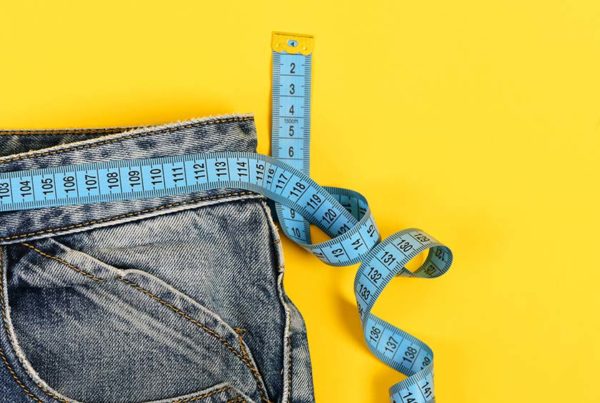
Scientific support for low-carb/nutritional ketosis rises at the inaugural Metabolic Therapeutics Conference.
My recent participation in the first-ever Metabolic Therapeutics Conference was a refreshing and hopeful look into the future of nutrition and fat-burning, but it also brought to light the many challenges ahead.
It’s now being widely accepted that the ultimate fat-burning metabolism is created by eating certain foods while avoiding others. As carbohydrates are reduced and fats increased, the metabolism kicks in to burn more stored body fat for energy, both at rest and during physical activity. Fatigue, pain, hunger and many other abnormal signs and symptoms that can reduce quality of life can suddenly disappear.
Taking it a step further, a very low-carbohydrate eating plan increases fat-burning even more, and also raises ketone production. Ketones are another source of energy, especially for the brain but also the heart and other body parts. Benefits include reduced reliance on sugar for fuel, which can reduce tumor growth, and much more.
Ketones are not only used for energy in the heart, brain and other tissues, but the state of nutritional ketosis may be the ideal approach to prevent most of the common chronic diseases from Alzheimer’s to cancer, and diabetes to heart disease. This healthy nutritional state, which medicine has used for more than 100 years to treat epilepsy, is also thought to successfully treat many types of brain injuries, including Alzheimer’s, along with obesity, Type 1 and 2 diabetes, brain tumors and other cancers.
One of my earliest experiences with ketosis was while fasting 43 years ago. We now know that fasting is not necessary to get the body to increase fat-burning significantly — you can do this simply by eating the right delicious foods.
Humans evolved eating unprocessed, low-carbohydrate, high-fat foods, and this was a key stimulus to how the human brain has evolved. High fat-burning played a key role, and ketones were part of this metabolism, a state that was the result of both foods consumed and, during times of low food availability, fasting. Add to this the most common physical activities that included long-distance walking and jogging with the occasional sprint.
Fast forward to Jan. 28-30, 2016, and the first Conference on Nutritional Ketosis and Metabolic Therapeutics in Tampa, Florida, held in conjunction with the launch of the new scientific journal by the same name. Most of the important researchers who have been publishing their work on low- and very-low carbohydrate eating, including nutritional ketosis, over the past 20 years, especially in the last five years, were presenting their work.
This conference was encouraging from the standpoint of the low-carb lifestyle and nutritional ketosis coming of age without any dramatic changes to the knowledge base formed over several decades; however, it also highlighted just how much work still needs to be done before this concept becomes accepted among the scientific community and general public.
Many of the studies presented, from the treatment of brain tumors and autism to resolving obesity and eliminating meds in diabetics, were published in mainstream medical journals. It was powerful data no one could ignore and everyone can use, if they choose. While the scientific stamp of approval has now been made, it must be noted the scientific studies showing effectiveness are new.
Unfortunately most practitioners will not suddenly recommend a ketogenic diet. Yes, small numbers of clinicians already do, but most don’t and won’t make it a standard of care any time soon. Most still think it’s crazy after all these years.
One problem is that eating healthy and natural food is not a profitable venture. The fact that it might eliminate your need for medication, make you feel — and be — younger, drastically reduce your risk for chronic disease, fix your brain, and other benefits too numerous to list here — and does all this without side-effects — makes it a difficult sell.
Backing this up, governments from around the world — including the U.S., New Zealand and Australia — frown upon it. Many health practitioners, including those who have a main focus on food, are not up-to-date on it, often confusing it with keto-acidosis (a serious condition sometimes encountered by diabetics).
Another problem is competition. Surgical procedures and medications are huge businesses that don’t like to compete. The result is too few clinical cases are treated with better eating, despite it being a safe, simple, successful and inexpensive remedy.
Furthermore, this approach is viewed as just another “diet” in the mainstream, mixed in and diluted with the many other, mostly unhealthy, diets consumers routinely choose to try, including many popular low-carb plans. Following a diet, of course, is not the same as finding the best eating plan for your particular needs, whether that puts you into a state of ketosis or just high fat-burning. You can’t go wrong.
And so, the traditional medical model is alive and well — wait until you have one or more of many medical diagnoses, then, and only then, can you treat it with a ketogenic “diet.” Why not start now with the best food plan?
Also disappointing but not a surprise were the many sponsor companies on hand promoting new keto dietary supplements and so-called super-foods. I prefer my fat-burning coffee with real food such as a whole egg, heavy cream and coconut oil, rather than processed powders in a pill or scoop.
The conference also highlighted studies of athletes who were in a very high state of fat-burning. Nothing new, but something to behold when published studies show that those in ketosis can perform better, and healthier too, with fewer “side-effects” of training, such as trauma-related inflammation, poor recovery and injuries.
My poster presentation was a case report of an Ironman athlete, which you can see here. I also was co-author of a poster presentation with Dr. Cathy Dudick, a trauma surgeon and triathlete from New Jersey. Read our abstract here.
Dr. Mark Cucuzzella also contributed by presenting ideas that would have been heresy not long ago. He teaches his West Virginia University medical students about nutrition, real food (he even teaches them to make Phil’s Bars), and how to get patients healthy and off meds. This is one small wonderful step for the future of healthcare.







